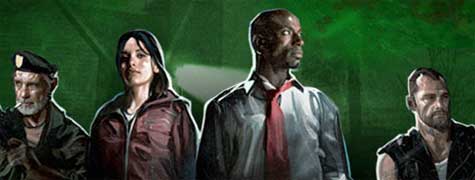-
"…when I am busy, I feel that I am not fighting with my works, I am fighting with those post-it notes and deadline." Lovely stop-motion, involving pixel-art made of post-it-notes. Made me smile this afternoon.
-
"We couldn't believe it either, but as it turns out, from the launcher screen of your Pre, simply type in the phrase "upupdowndownleftrightleftrightbastart" and up comes a hidden app called "Developer Mode Enabler."" Let's face it, every device has to have a cheat code.
-
Alf's spotify searches for independent record labels. Super, even if the Ninja Tune list is a bit Cinematic Orchestra heavy. (I like the Cinematic Orchestra, but I like other things, too).
-
"And that is the best definition of casual that I can come up with: Casual players cannot be rated better or worse than other players." Torres finds a nice overlap with the Hicks/Hudson duality; I like his suggestion that casual players don't have metrics for comparison, because their primary goal is fun, and you cannot compare types of fun.
-
"File under Career, Future, Success"
-
"Jones said how most open city games tend to come with about 100 licensed tracks, but that they realised that most players would far rather listen to their own mp3 collection. But this is an online game. So they’ve done a deal with Last.FM to use their technology in such a brilliantly imaginative way. If you’re listening to a favourite track in your car, and drive past some other players, should they have the same track on their hard drive the game will find it, and they’ll hear it from your car as you go by. Should they not have it, the game will find a track that’s similar and play that instead." Just that quotation alone is remarkable, but it really does sound like APB is something special; let's just hope it's a success.
-
"…there are an awful lot of excellent reasons for ending a blog, and that many blogs which do end are by no means “failures”. Social media coverage in general should focus a lot less on the things people do or don’t “achieve” via these tools, and more on the fact that conversation, writing, collaboration and suchlike are pleasants thing to do in and of itself. Reclaim social media for the flaneurs, is I guess what I’m saying!" Tom Ewing is right.
Dangerous Mistakes In The Company Of Friends
08 June 2009
(or: ‘More Hudson, Less Hicks’)

“I’d like to introduce you to a close personal friend of mine.”
That close personal friend is Corporal Dwayne Hicks. James Cameron’s Aliens has many things to answer for – especially when it comes to the world of videogames – but I’d argue that in its characters, I see the archetypes of players on every Call of Duty 4 server I’ve visited, every Halo 3 TDM game I’ve joined. Hicks isn’t just a model of professionalism for the survivors of the USS Sulaco’s marine team; he’s a model for legions of gamers everywhere.
The online gaming world is full of Hickses. It’s why I don’t frequent public servers very often. I’m just bored of playing against people who seem to take no joy in their games; just a dreary sense of workmanlike competence. Somehow our games have managed to emphasise competence, professionalism, and dead-eye accuracy over having fun. Perhaps not emphasise; perhaps they go further, fetishizing skill – the reams of statistics detailing kill ratios, the obsession with XP, score, and rank, is often taken by players to be not a part of the game, but the reason to play it. And that seems sad.
Because whilst being the best, and having the best ratio, or the best kit is part of the fun of games, a lot of the fun of online gaming comes from a peculiar kind of theatre that emerges from the best online games.
Not messing around, breaking the rules – that’s no fun – but the kind of play that emerges when you succeed badly. Succeeding despite your skills, rather than because of them.
To go back to Aliens a moment: really, I’d like it if more gamers were more like Bill Paxton’s Private Hudson.

“Game over, man! Game over!”
No, really. Sure, Hudson is a similarly competent professional to his NCO, and I can’t deny that he doesn’t fetishize his toys a little… but he’s also the soul of the party. He’s the goofball you can trust with your life. (Which, now I come to think of it, is Bill Paxton’s stock-in-trade). I’d take a legion of stumbling, wise-cracking Hudsons over a dour Corporal Hicks any day.
And nowhere is this more obvious than in Left 4 Dead.
Lee described the joy of Left 4 Dead as “making dangerous mistakes in the company of friends“. What could be better than that? Taking risks, sometimes being punished, usually being chastised, but then having a chance to redeem yourself, with the people you love? That sounds like the best kind of gaming. Better than competence any day.
And it sounds a lot like a Left 4 Dead campaign a few of us ran a few weeks ago. Time for a story!

It’s the end of the third map of Dead Air – the escape over the skybridge – and the four of us have got to the outside of the airport. We’re a bit worse for wear – we haven’t been bringing our A-games – and by the time we get to the multi-storey carpark, we’re on our last legs; a tank and two horde encounters outside the airport took its toll.
So we decide to run.
It is, after all, not far from the car park to the other side of the skybridge.
We belt it through the carpark, capping the odd zombie on the way, and make it to the safe room. All three of us make it to the safe room.
Jones – who is playing Louis – is nowhere to be seen. We yell for him, and, with our magic Survivor X-Ray vision, see that he’s back outside the carpark. Uh-oh.
So we yell for him to come upstairs. We’ll leave him behind in a heartbeat if we have to, but for now, he deserves a fair crack of the whip. So we watch, as X-Ray Louis limps his way into the carpark. He might just make it.
And then he sets off a car alarm, and we hear the baying of the zombie horde.
What went from being a minor cock-up is now a hilarious balls-up of the highest order. Alice and Mike hunker down in the safe room – sensible them – and I take up position crouched in the corner of the skybridge, assault-rifle ready.
(I am playing Bill, and taking the role-playing of the gruff old veteran a little seriously for the purposes of drama).
“Come on, Matt,” we cheer, and soon we see Louis limping through into the corridor of the skybridge. He’s about halfway down the corridor when the express-train that is the zombie horde piles through the door behind him.
I dump an entire clip of rifle ammo into the zombie-train; Jones gets into the safe room; the gun clicks dry and I run back through the doorway –
– straight into the arms of about eight zombies. This is not, in fact, the safe room. It is an amusingly-positioned closet next to the safe room. Desperately, I bash as hard as I can, scrabbling through the horde, and into safety next door.
Somebody, I forget whom, fends off the crowd of zombies I appear to have dragged into the safe room with me, and the door slams shut.
Not only have we survived, we have also not stopped laughing since the car alarm went off. It’s possibly my favourite Left 4 Dead experience ever. We didn’t survive a round on Expert, we didn’t get an all-headshot round, we didn’t drop a Tank with no damage. We messed up, we made stupid mistakes, and as a result it was more like a zombie movie than any perfect run could be. Together, we made a strange kind of consensual theatre, and we still survived, and it was all an absurd amount of fun. (This session is also is one of the many reasons I’m very excited that Valve are introducing Gauntlets – hectic, running-chase Finales – to Left 4 Dead 2).
I don’t play videogames because I want to have competent, professional militaristic encounters with friends. I’d take Dangerous Mistakes In The Company Of Friends over competence any day. Sure, they may be mistakes, but they’re dangerous! They’re exciting! And sometimes, they make the game better than it ever could be when you play it “right”. I wouldn’t want it any other way.
-
"For the past three decades, Popovich has been one of a secret tribe of big game hunters who specialize in stealing jets from the jungle hideouts of corrupt landowners in Colombia, Mexico and Brazil and swiping go-fast boats from Wall Street titans in Miami and East Hampton. Super repos have been known to hire swat teams, hijack supertankers and fly off with eastern bloc military helicopters. For a cut of the overall value, they'll repossess anything." As jobs go, this one is pretty extreme; it's a great article.
-
"There is one thing that our current consoles are terrible at; lighting. Our current lighting solutions are improving, but for the moment we have much difficulty simulating indirect lighting, especially in real-time… To hide this problem, we tend to instinctively desaturate everything. The mere presence of saturated colors unbalances the rest of the image. Since we often have some form of ambient occlusion in our environments, this visual effect makes the game look more visually convincing." And so: everything is brown.
-
"There've been studies on how gamers actually become better business leaders," she says. "They're very familiar with that creative, collaborative team space that's so much a [part of] our businesses." And creative, unstructured play means letting players fail, she asserts.
Giving players the opportunity to have failure states — not just a "strict message that's being delivered" — is the right way to encourage players to learn and explore. She noted educational game Electrocity, a SimCity inspired resource-management game, that allows for mistakes and consequences. "Sometimes in those moments is when people 'get it' strongly," says Bradshaw.
-
"Gee says he's been struck by the lack of age grading in successful communities — people of all ages are participating. Another feature is the lack of distinction between the "mentor" and the "mentors," within the community. "On one day you'll teach and another day you might learn… everybody is in one role or the other all the time and there are no fixed statuses in that regard."" James Gee in conversation with Henry Jenkins.
-
"The Queen has told you to return with her heart in a box. Snow White has made you promise to make other arrangements. Now that you're alone in the forest, it's hard to know which of the two women to trust. The Queen is certainly a witch — but her stepdaughter may be something even more horrible…" An interesting take on conversational IF, even if some of the most interesting endings – and best writing – his relatively cryptic to access…
-
"…even if they make the rules explicit, it’s not going to help the “power-leveling problem” which is ostensibly the reason for all of this grief. Unless they remove all difficulty options from the system, there will always be easier and harder ways to level. And remember what I said above: users tend to prefer easier content with better rewards. This isn’t limited to user-created content — it’s true for designer-made content, also. But designer-made quests don’t get graded by the players. Player-voted content like this will always gravitate towards easy. And pick-up groups will always be picking the most rewarding content with the least annoyance. And the game devs will keep being unhappy about it." Smart analysis of the problems with City of Heroes' user-generated missions.
-
"Games don't separate learning from assessment. They don't say "Learn some stuff, and then later we'll take a test." They're giving you feedback all the time about the learning curve that you're on. So, they're not the only solution to this problem by any means, but they're a part of the solution of getting kids in school to learn not just knowledge as facts, but knowledge as something you produce; and in the modern world you produce it collaboratively." Jim Gee is a smart guy. I need to read more on him.
-
"I suggested that, when it comes to the design of embodied interactive stuff, we are struggling with the same issues as game designers. We’re both positioning ourselves (in the words of Eric Zimmerman) as meta-creators of meaning; as designers of spaces in which people discover new things about themselves, the world around them and the people in it."
-
"Statisticians’ sex appeal has little to do with their lascivious leanings … and more with the scarcity of their skills. I believe that the folks to whom Hal Varian is referring are not statisticians in the narrow sense, but rather people who possess skills in three key, yet independent areas: statistics, data munging, and data visualization. (In parentheses next to each, I’ve put the salient character trait needed to acquire it)."
-
Ron Gilbert plays The Secret Of Monkey Island again, and takes notes. Nicely measured – neither grumpy nor jubilant, it reads like an interesting director's commentary. Good stuff.
-
"This week I've killed Steven Spielberg three dozen times. I'm feeling better about the whole thing now, so I'm not going to vent any more steam about his increasingly asinine – and frankly pretty arrogant – repetition of the 'games won't be important until they can make you cry, which up until now they haven't been able to, but don't worry I've come to fix things' line." Which, you know, is good, because it means Margaret can talk about the joy of cubes instead. Or Cube, to give him his proper name. A wonderful One More Go, this week.
-
Haynes Manual for the Apollo 1 LM and CSM. Awesome.
-
It looks like a GBA Micro; in fact, it's a portable multi-platform emulator, it's $100, and there's almost nothing you can do on it that isn't highly illegal. But if the hardware's manufactured well, it's a lot less faff than modding a PSP these days…
-
Ooh, nice – online favicon generator and editor. Might be useful one day.
-
"Valve subtly guides the player’s attention toward significant events and objects by using elements naturally found in the game world. This allows the player to retain control of their perspective without getting lost or confused, and contributes to an overall immersive experience." Matthew Gallant puts together a nice selection of screengrabs to illustrate Valve's craft.
-
"There was an implicit value judgement in Greenfield's talk between the "purely sensory experiences" of raves or today's computer games, and the cognitive activities of reading a book or listening to a symphony, which, because they make us "see one thing in terms of another thing", involve a more mature mental engagement. For Greenfield, the Beethoven was a higher experience because it offered an "escape from the moment", where a rave was about losing yourself to the "thrill of the moment". I think that's a flimsy distinction, since both are about submitting to the sensory power of music. I'd like to see the difference in brain activity between somebody "escaping" life's mundanities and another person "thrilling" to the implacable now of the beat."
-
"I thoroughly enjoy the more real time nature of these diary fragments popping up among my friends’ updates. It’s easy to picture @samuelpepys conducting his business and pleasure, travelling around London — from his home near the Tower of London to Deptford to Westminster — when he’s updating you on his progress during the day." Phil on the joy of small updates from things that aren't (quite) people.
-
"Sony acts like a character in a Charlotte Brontë novel–they seem to think they have an entire lifetime to seize the moment."
-
Castronova's paper on whether the Law of Demand, as it works in the real world, also works in the virtual.
-
Ryan North makes a little poem dedicated to the COALESCE function in MySQL. He's right: it's super useful.
-
"Local devs, running local services, but how to share with everyone in the room?" Answer: rebuild all your tools to work across Bonjour. Slightly bonkers but very cool.
-
"When we assembled a focus group of Xbox Live players, they immediately asked for one feature we hadn’t even considered – in-depth tracking of the groin area, for post-kill celebrations. We were proud to help them find a new revolutionary way to teabag – and believe me, these ain’t no waggle controls." Hardcasual goes for the soft targets, as usual. Ahehe.
-
Seriously, Harmonix' character design is just amazing, and this movie – just the _intro_ movie to Beatles Rockband – is making me care more about that band than anything in my life has. Harmonix are gods.